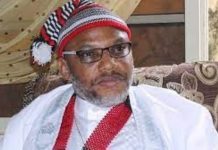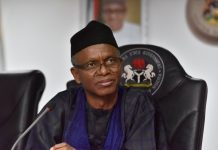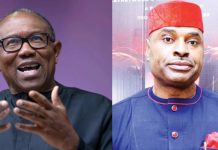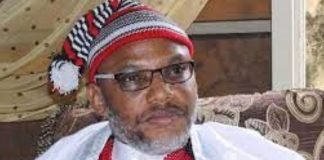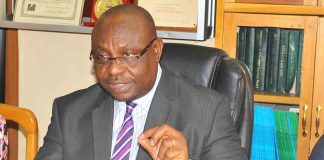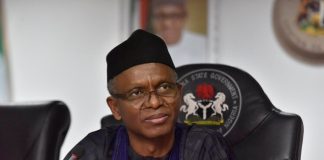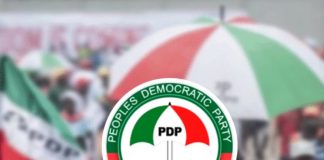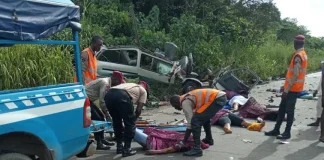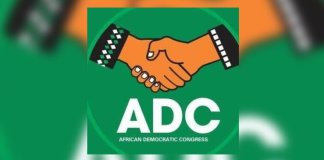🌿 Ruzu Non-Alcoholic Herbal Bitters
Ruzu Non-Alcoholic Herbal Bitters is a natural health supplement specially formulated to:
- ✅ Promote general wellness
- ✅ Detoxify the body
- ✅ Support the treatment of various ailments
Made from a powerful blend of 100% organic and medicinal herbs, Ruzu is completely alcohol-free, making it ideal for:
- 👪 All age groups
- 🌱 Health-conscious individuals
- 🌿 Anyone seeking non-alcoholic herbal remedies
Whether you're looking to boost your vitality, cleanse your system, or support healing the natural way, Ruzu Bitters offers a trusted herbal solution.
FG: $800m W’Bank Post-petrol Subsidy Removal Facility Awaiting NASS Approval for Disbursement
.…Says 50m vulnerable Nigerians identified, registered to receive N5,000 cash transfer each
By Admin
The Minister of Finance, Budget and National Planning of Nigeria, Mr. Zainab Ahmed, at the weekend clarified that the $800 million facility the country recently got from the World Bank for post-petrol subsidy removal palliative was awaiting parliamentary approval for the federal government to commence disbursement.Ahmed, said this during an interview with journalists on the sidelines of the just concluded International Monetary Fund (IMF)/World Bank Spring Meetings in Washington DC, United States.
According to her, the facility would be deployed to provide succor to 10 million households, who are expected to get N5,000 each for a period of six months.The minister explained that the initial duration of the palliatives meant to cushion the effects of the planned subsidy removal on vulnerable Nigerians was for six months, but would be reviewed upon extensive consultation with stakeholders.She also debunked a report by a national newspaper (not THISDAY) that the federal government would be paying consultancy fee of $23.3 million on the facility.Ahmed explained: “The $800 million has been negotiated and approved by the Federal Executive Council (FEC) and we now have a request before the parliament for approval. And once the parliament approves it, we will roll it out.“We’ve also been doing preparatory work side by side along the approval process. And that includes the building of the social register which will be used for the electronic transfers of the funds.
“We needed to have this ready because when the government eventually removes fuel subsidy, there will be an immediate transport palliative that will be provided to the most vulnerable members of our society who have been identified, registered and now contained in our national social register.“This effort is led by the Ministry of Humanitarian Affairs, Disaster Management, and Social Development. They developed that register with the support of the World Bank. The register has about 10 million households and that’s an equivalent of 50 million Nigerians.”
Speaking further, Ahmed said the initial design was to disburse cash transfers of N5,000 per month per household for a period of six months.She noted that there would be an assessment with the transition team and If the initiative or relief was not enough, the country may need to raise additional resources to be able to cover more people, extend the period or increase the amount.
“When the subsidy is removed, there would be additional revenue that would now accrue to the federation account. One of the things we are working on is how this incremental revenue would be used. The money belongs to the federal, state, and local governments. “We hope that we’ll be able to still ring- fence this incremental revenue and apply it to measures that will help to ensure that the fuel subsidy removal is actually sustained so that It won’t be another start-and-stop program.
“But this has to be a collective decision. The current administration and the incoming administration are working on a plan to make sure that we have a consensus on how to use that incremental revenue.”Responding to a THISDAY question on the payment of consultancy fee on the facility, Ahmed said: “I have no clue as to what this is about. We raise our funds ourselves. We don’t need consultants to raise funds from these institutions.”
She added: “The $800 million was raised by discussing with the Debt Management Office, the Ministry of Finance, and the World blBank Country Office for Nigeria. We don’t need consultants to help us raise any kind of finance. We have internal expertise that has worked well over time, so we don’t need consultants for that.”Shedding more light on the likely impact of fuel subsidy removal on the economy, she acknowledged that it was expected to cause some increase in the prices of goods and services.
This may further elevate inflationary pressure in the country.The Consumer Price Index which measures inflation in Nigeria rose to 22 per cent in March, according to figures released by the National Bureau of Statistics at the weekend.“Fuel subsidy removal would always come with some challenges like increased inflation, which would naturally happen. It would spike initially and then it would moderate and normalise. Anywhere in the world where you remove any kind of subsidy, it has that effect.“That is why that initial fund is necessary so that you are deploying it quickly and reducing the impact on the lives of the most vulnerable people in our society.“So yes inflation may go up, but our assessment is that it would not go up much because as it is, price of fuel in Nigeria or the cost Nigerians are already paying for fuel reflects the high cost of what would be attained when the fuel subsidy is removed,” Ahmed declared.
She pointed out that, “people are buying fuel at very high rates, it is not the pump price. So we think that inflation is already built into it. There might be some increase, but it would not be a huge spike and even if there is, it would be transient and it would quickly come down and moderate.”Giving an overview of the performance of the country’s delegation to the 2023 Spring Meetings which was led by her, she said: “We met at a time of high global uncertainty with successive shocks of the war in Ukraine, rising inflation, fragmentation and monetary policy tightening and most recently the financial market stress in the Silicon Valley Bank, Signatures Bank and Credit Suisse Bank.“With over 345 million people in Developing countries facing acute food insecurity and 700million people living in extreme poverty most of who are in Africa. The delegation attended a couple of statutory, bilateral and side meetings
“On the statutory meetings, she said: “At the International Monetary and Financial Committee where I represented 22 countries, I spoke on the need to monitor financial stability risks and the need for moderation, open and rule-based trading system to allow for the free flow of essential supplies.“I also called for the speedy implementation of the G20 Common framework on debts. While raising concerns on delays in debt restructuring for some countries., I encouraged cooperation between creditors and the affected countries to ensue completion of the programs. I also used the opportunity to highlight macro-economic development in Nigeria including ongoing engagements with all critical stakeholders on the need to mobilise additional resources for remove the fuel subsidies and free up resources for investment in the social sector.“I am happy with the retention of the IMF growth forecast for Nigeria at three per cent which is consistent with our internal projections even though our desire is to have higher GDP growth.“At the Development Committee of the World Bank, we discussed the on-going World Bank Group evolution agenda which is in response to the G20 Independent Panel on Capital Adequacy Framework
“We encouraged the Bank to remain focused on the twin goals while enhancing its operating and financing models to enable it cope with increasing trans-border and global challenges. We encouraged the World Bank to consider access to energy as one of the global challenges for Africa“At the G24 Meeting, I commended members for their support that led to election of Dr. Iyabo Masha of Nigeria as the first African Director.“I also had bilateral meetings with Multilateral Investment Guarantee Agency (MIGA) to consider how best Nigeria can leverage MIGA resources in infrastructure investment and discussed some pipelines“I also met with Senior Management of IFC Vice President for Africa, where we agreed to grow Nigeria’s portfolio in the real sector.
Read Also:INEC Declares Fintiri Winner Of Adamawa Gov Election
We also had preliminary conversations on the possibility of IFC’s visibility in the aviation and maritime sectors especially in the newly modernised airports and some of the seaports in Nigeria. I also facilitated the dialogue between MOFI and IFC“I also had preliminary discussions with Shelter Afrique on the need to explore an innovative housing program for the IDPs and support the affordable housing scheme“At the FAD of the IMF, we discussed the need to scale up Technical Assistance for FIRS and NCS in growing the revenue potentials of the country.”Furthermore, Ahmed disclosed that in collaboration with the World Bank Group, development partners and some members of the international community, “we held an event to showcase the massive investment potentials of the country, the current challenges and how we are tackling them.”“We also had conversation with them including members of the Transition Team on potential priorities of government and requested for the understanding and strong support of the Developments and Business community for the in – coming government,” she added.



